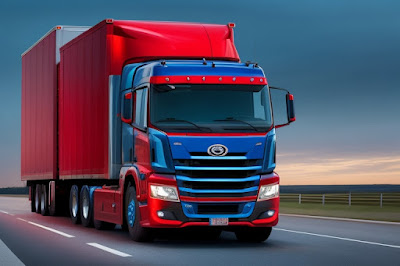In the dynamic world of transportation, team truck driving has emerged as a revolutionary approach, reshaping the traditional solo driver model. This comprehensive guide aims to provide an in-depth understanding of team truck driver (TTD) jobs, exploring the myriad benefits, challenges, qualifications, and the broader impact on the trucking industry.
Benefits of Team Driving:
- Enhanced Efficiency and Speed:
Team truck drivers fundamentally transform the speed and efficiency of freight transportation. With two drivers sharing the driving responsibilities, the truck can operate continuously, minimizing downtime and maximizing the number of miles covered. This collaborative approach proves especially advantageous for long-haul routes where fatigue can be a significant concern for solo drivers.
- Maximized Earnings Potential:
The financial incentives associated with team truck driving are a major draw for many drivers. The ability to cover more miles in a shorter timeframe directly translates to increased productivity and, subsequently, higher earning potential. Companies often offer competitive compensation packages to teams, recognizing the value they bring to efficient freight delivery.
- Improved Work-Life Balance:
Team driving introduces a more flexible work schedule, a crucial factor in enhancing the work-life balance for truck drivers. With one driver resting while the other operates the vehicle, a structured approach to driving and rest periods is established. This dynamic helps alleviate the challenges of extended periods on the road, contributing to a more balanced lifestyle for team drivers.
Qualifications for TTD Jobs:
- Commercial Driver's License (CDL):
The cornerstone of any truck driver position, a valid Commercial Driver's License is a non-negotiable requirement for team truck drivers. This ensures that individuals possess the necessary skills, knowledge, and legal qualifications to operate large commercial vehicles safely.
- Clean Driving Record:
Companies offering team truck driver positions prioritize candidates with a clean driving record. This includes a history of responsible driving, strict adherence to traffic regulations, and an absence of serious accidents or violations. A clean record is indicative of a driver's commitment to safety and reliability.
- Teamwork and Communication Skills:
Effective communication and seamless teamwork are critical for success in team driving. The ability to coordinate, share driver responsibilities, and communicate efficiently ensures a smooth and safe journey. Companies seek drivers who not only excel individually but can also thrive in a collaborative environment.
Challenges of Team Driving:
- Close Quarters and Limited Privacy:
Team drivers face the unique challenge of spending extended periods in close quarters, sharing both living and working spaces. This lack of privacy can be demanding, necessitating adaptability and strong interpersonal skills to maintain a harmonious working relationship.
- Synchronized Schedules:
Coordinating schedules is a logistical challenge inherent in team truck driving. Ensuring both drivers receive adequate rest while maintaining continuous operation requires a well-established routine that optimizes driving and rest periods while complying with legal requirements.
- Compatibility and Communication Issues:
The success of team driving hinges on effective communication and compatibility between drivers. Differences in driving styles, habits, or communication preferences can lead to friction. Companies invest in pairing drivers with compatible personalities and work styles to mitigate potential challenges.
Impact on the Trucking Industry:
- Meeting Growing Demand:
Group truck transportation plays a pivotal role in addressing the escalating demand for timely and efficient freight transportation. The rise of e-commerce and elevated consumer expectations has intensified the need for innovative solutions, making collaborative approaches like team driving indispensable.
- Enhanced Driver Recruitment and Retention:
The collaborative and potentially higher-earning nature of team driving positions makes them an attractive option for drivers. Companies offering such positions find it easier to recruit and retain skilled drivers, contributing to a more stable and qualified workforce. This shift positively impacts the overall health of the trucking industry.
- Technological Integration:
The advent of team driving has triggered significant technological advancements in the industry. Real-time communication tools, advanced tracking systems, and other innovations have become integral to optimizing efficiency and safety in team operations. This tech-driven evolution reflects the adaptability and forward-thinking nature of the trucking industry.
TTD jobs represent a transformative and efficient approach to meeting the evolving demands of the transportation industry. While challenges exist, the benefits, including enhanced efficiency, maximized earnings, and improved work-life balance, make team driving an attractive and sustainable option for many truckers. As the industry continues to embrace collaborative solutions, team truck driving is poised to play a pivotal role in shaping the future of freight transportation. Its impact extends beyond individual drivers, influencing recruitment practices, industry dynamics, and technological advancements that collectively contribute to a more resilient and efficient trucking ecosystem.





